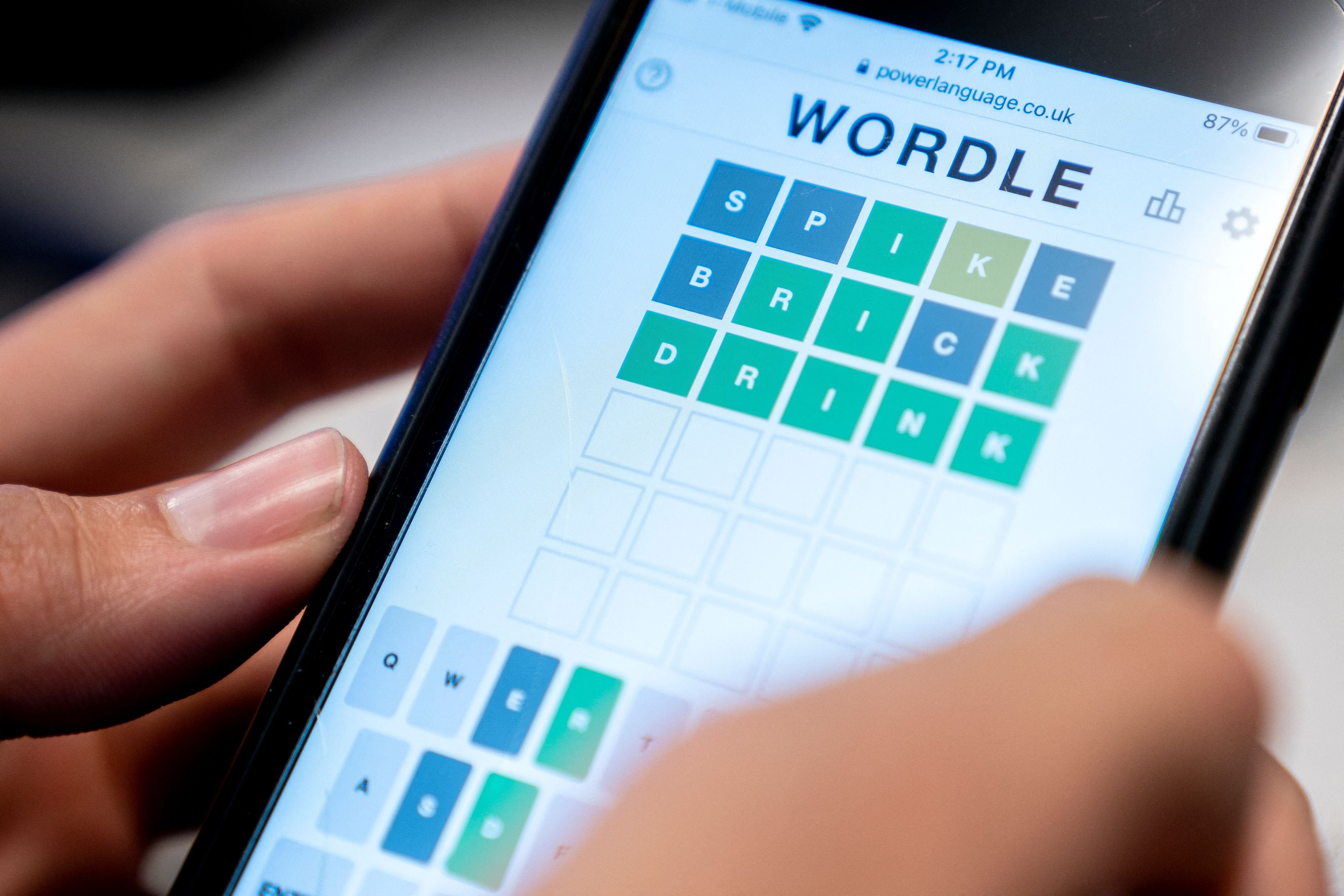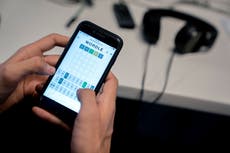Stop sharing your Wordle scores on Twitter! It’s boring
It’s for the fellow game-detesters that I write now. I implore you all to announce yourselves


Your support helps us to tell the story
From reproductive rights to climate change to Big Tech, The Independent is on the ground when the story is developing. Whether it's investigating the financials of Elon Musk's pro-Trump PAC or producing our latest documentary, 'The A Word', which shines a light on the American women fighting for reproductive rights, we know how important it is to parse out the facts from the messaging.
At such a critical moment in US history, we need reporters on the ground. Your donation allows us to keep sending journalists to speak to both sides of the story.
The Independent is trusted by Americans across the entire political spectrum. And unlike many other quality news outlets, we choose not to lock Americans out of our reporting and analysis with paywalls. We believe quality journalism should be available to everyone, paid for by those who can afford it.
Your support makes all the difference.Day 207, 4/6. Day 208, 3/6. My Twitter timeline is dissolving into fractions, green and yellow squares, before my very eyes – what could this traffic light morse code mean? Only one thing: Wordle-mania is here, and it’s spreading faster than Omicron.
The internet’s new favourite word game has taken social media by storm, attracting wild praise for its novel approaches to a) advertising (there isn’t any) and b) time sapping (ditto, you can only do one puzzle per day). Yeah yeah, great – but what about me? A new year has barely gotten started, but already I’m alienated from its defining craze.
At the risk of sounding like Ross I-Don’t-Like-Ice-Cream Geller – my name is Emily Watkins, and I hate games with a blind passion. Phew; feels good to get that off my chest – which is lucky, because I know it doesn’t sound great.
Big sporting events notwithstanding (you can imagine what a delight I am when Wimbledon or the Euros are on) my game-allergy goes largely unchallenged in day-to-day life. Woe betide the poor soul who gets out a pack of cards at my party, puts the football on “in the background”, or suggests a quiz night instead of just drinks at the pub – but most of the time I simply don’t need to confront my aversion. Yet, the Wordle plague of 2022 (hopefully, the year’s defining contagion) has meant I can no longer stay silent. Everyone I know is congratulating each other on solving the same clue, and I can only look on in judgy, grumpy bafflement.
I’m more than happy to admit that I’m the weird one here. I know, for example, that there exist some people for whom anything can be made appealing simply by gamifying it – think babysitting 101 “who can get ready for bed fastest?”, or of my boyfriend who would do almost anything for the cartoon Duolingo Owl and its judiciously awarded XP. And really, what’s so wrong with that? He’s practically mastered passé imparfait, after all.
To keep up to speed with all the latest opinions and comment sign up to our free weekly Voices newsletter by clicking here
Well. In much the same way as I struggle to look a grown adult in the eye after they’ve revealed they like Harry Potter, or ride one of those push-along scooters that are suddenly not only acceptable but fashionable, I cannot help but recoil from my peers as they earnestly swap tips for Wordle Success. I’m afraid that, on some level, I harbour the nagging belief that (whisper it) games are for children – doubly so when they end in that cutesy, diminutive suffix, -le.
In coming clean about this constitutional intolerance (for Wordle, sure, but by no means Wordle alone) I am aware that I’m voicing a very unpopular opinion indeed – yet in the same breath, I sense that there must be others like me. It’s for those fellow game-detesters that I write now. I implore them to announce themselves; to fill my Twitter timeline with something (anything) but Wordle, but also to lend the paradoxical solidarity of team-hood to our contrary cause.
Speaking of which: there’s a whole fable – by Aesop himself, no less – about sour grapes; dismissing that which we cannot reach as something we never wanted anyway. What I’m driving at is, did I come first in any race at school, did I ever score in netball, have I ever finished a puzzle with more than 20 pieces? No. And did I try and fail to do a Wordle before writing this? Yes. Would I be less game-averse if I won more often? Ask my therapist. Luckily, in real life, we get more than six tries at solving a problem.


Join our commenting forum
Join thought-provoking conversations, follow other Independent readers and see their replies
Comments